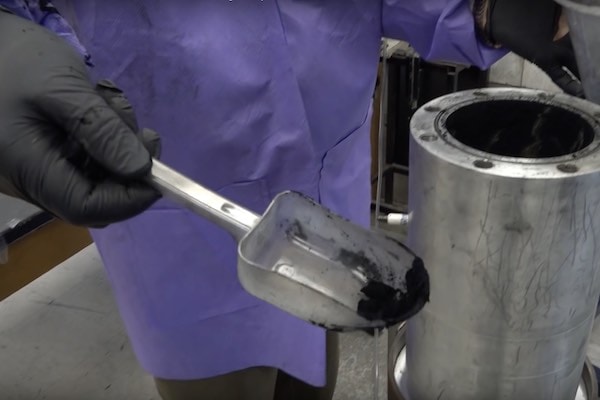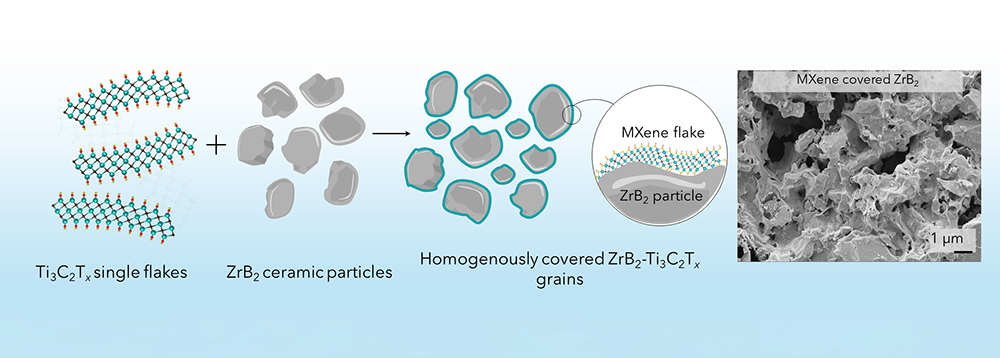
[Image above] Credit: K-State; YouTube
Graphene has gotten a lot of hype since this 2-D form of carbon was first discovered.
Yet, despite all its potential, graphene has so far been slow to make its way into commercial production. Because, it turns out, graphene isn’t all that easy to make in large quantities at low cost.
Although we’ve seen hints of that changing more recently—for instance, here and here—a new patent suggests that graphene might finally be hitting its scalability stride.
Researchers at Kansas State University have devised and patented a simple, inexpensive, and scalable method to mass produce graphene. Using only hydrocarbon gas, oxygen, and a spark plug, the Kansas State scientists were able to simply and inexpensively make a lot of graphene—no hazardous chemicals, catalysts, or fancy machinery needed.

(From left) Kansas State researchers Justin Wright, Chris Sorensen, and Arjun Nepal hold a container of graphene. Credit: Kansas State University

The 13 grams of low-density graphene aerosol gel in this container were created by hydrocarbon detonation. Credit: Kansas State University
“We have discovered a viable process to make graphene,” lead inventor and Cortelyou-Rust distinguished professor of physics Chris Sorensen says in a Kansas State University press release. “Our process has many positive properties, from the economic feasibility, the possibility for large-scale production, and the lack of nasty chemicals. What might be the best property of all is that the energy required to make a gram of graphene through our process is much less than other processes because all it takes is a single spark.”
The researchers accidently discovered that simply adding acetylene gas and oxygen to an aluminum cylinder and detonating the mixture with a spark plug yielded something potentially even more useful than what they were hoping for. The team was trying to form carbon soot aerosol gels, but instead produced gram quantities of graphene simply, efficiently, inexpensively, and scalably.
Watch this short video to see more from the Kansas State team.

Credit: K-State; YouTube
Author
April Gocha
CTT Categories
- Basic Science
- Electronics
- Manufacturing
- Material Innovations
- Nanomaterials
Spotlight Categories
- Member Highlights


